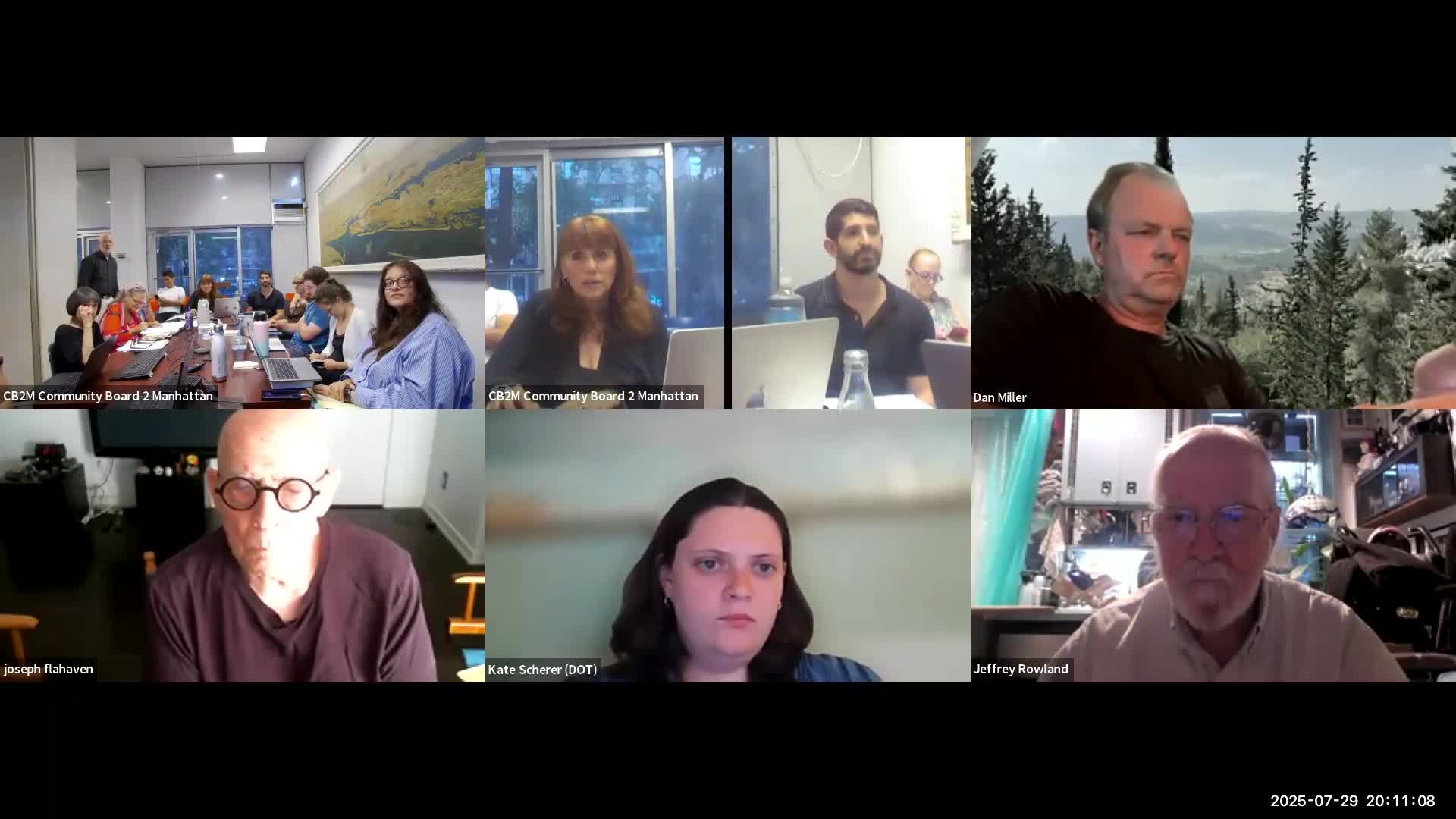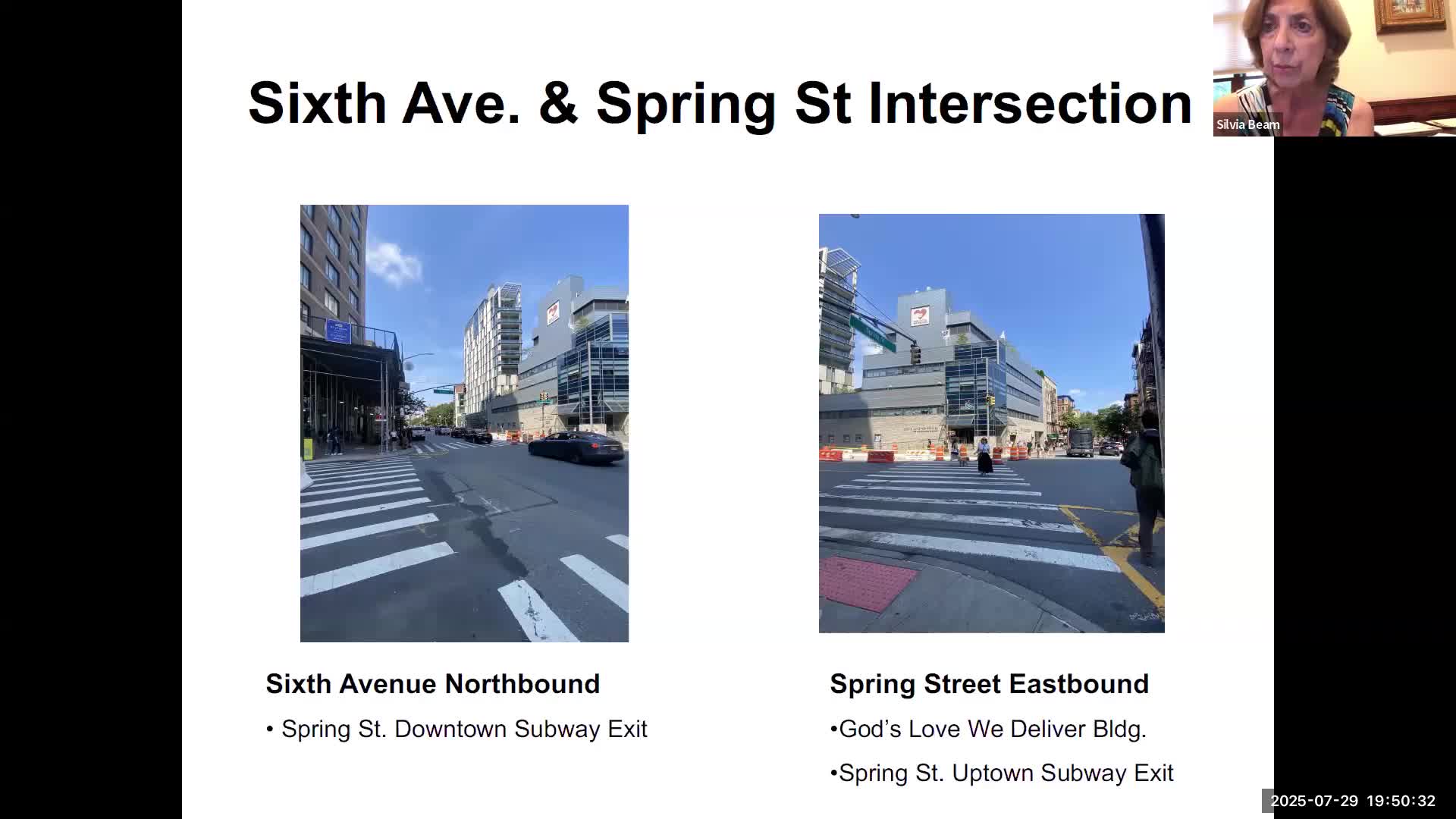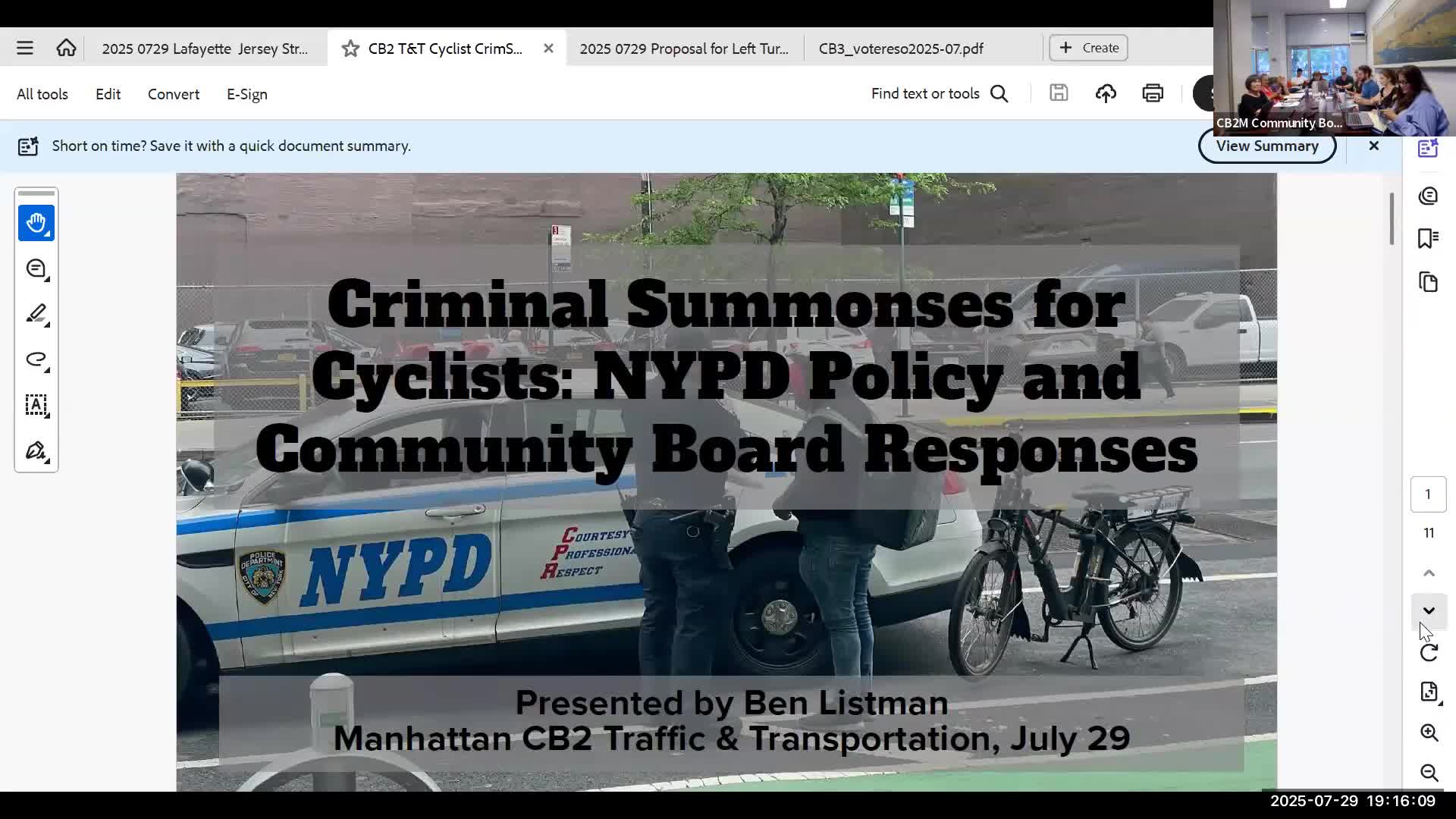Article not found
This article is no longer available. But don't worry—we've gathered other articles that discuss the same topic.

Residents press DOT for crosswalks, curb cuts or a pedestrianized Jersey Street at Lafayette near the library and retail

Neighbors ask DOT to study left‑turn signal at Spring Street and Sixth Avenue to ease pedestrian crossings near new subway elevator

Community board discussion: presenters and neighboring boards urge NYPD to stop using criminal summonses for cyclists

